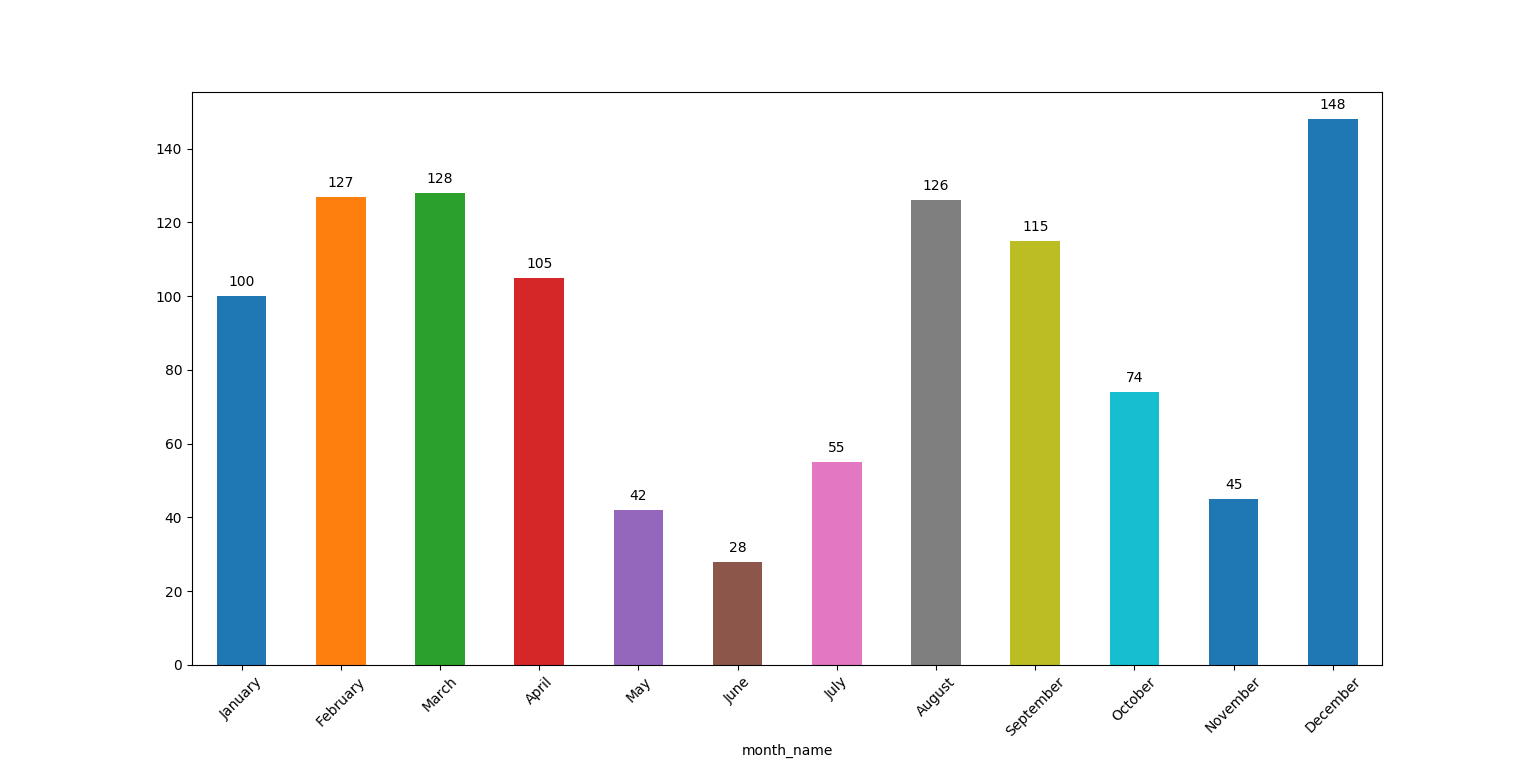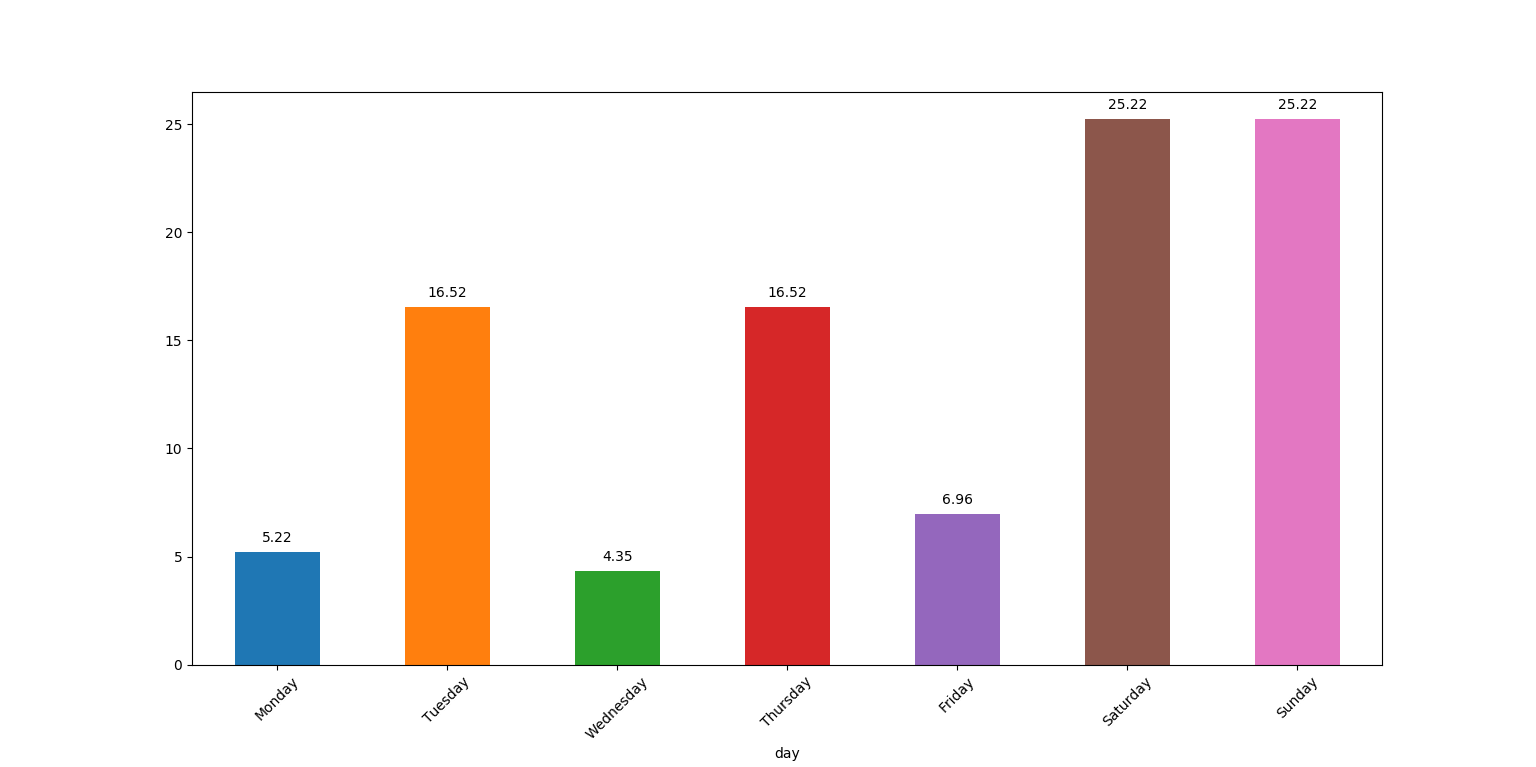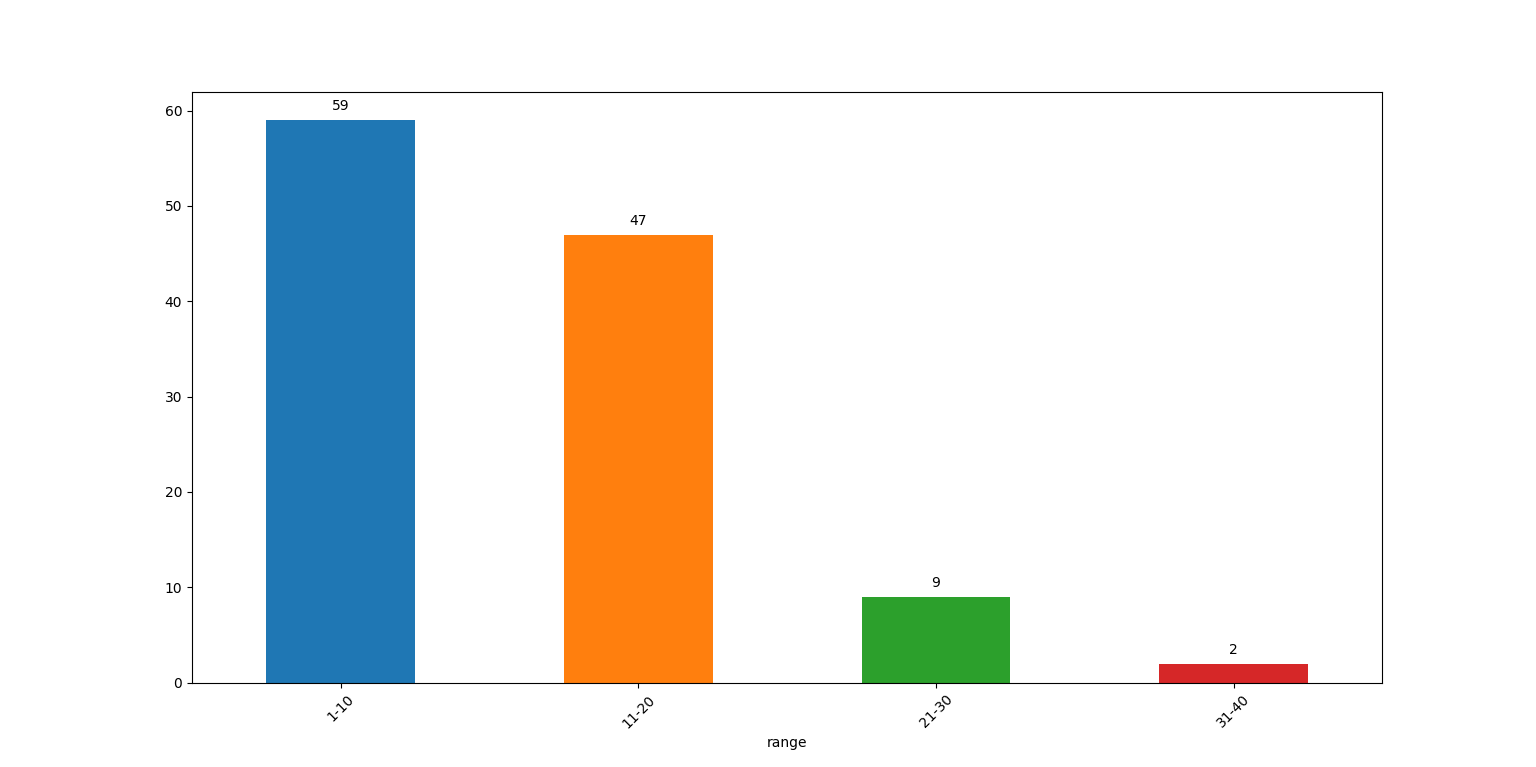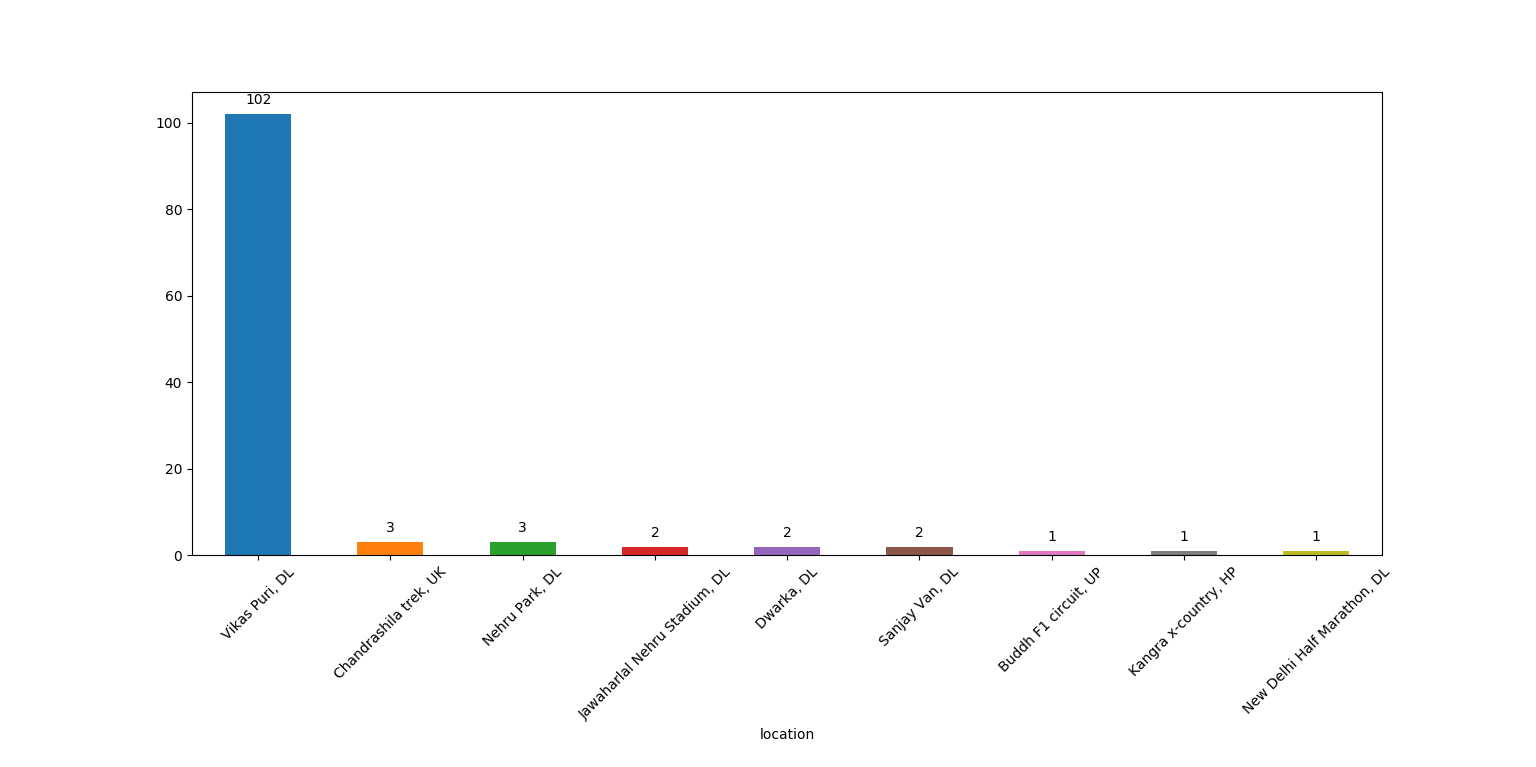How To Fall In Love With Running
15 January 2019 · running TweetI ran 1094 km in 2018. For the first time in my life, I've run almost every week for an entire year. I'll run my first marathon this weekend!
Running is the easiest thing you can do for your fitness. It needs no equipment, just a pair of shoes (or not, if you run barefoot) and you're good to go. It can help you lose weight and push out bad habits (by replacing them!). Also, runner's high is a real thing. You'll always feel good after a run.
I've fallen in love with running. My week feels incomplete if I miss a run. In this post, I'll try to explain the systems that helped me form that connection.
Minimize the required willpower. Reduce the number of decisions that take you from your bed to the running track. For example, if you set aside your car keys, t-shirt, shorts and shoes the night before your run, your brain knows the simple steps it needs to follow when you wake up. (1) Get up, (2) get stuff and (3) get out, instead of trying to make an effort to find these things in the morning.
Form positive memory associations. Find something you really like and use that as a reward for a run. I love learning and feel that podcasts are a good way to do that. So I listen to podcasts on my runs, unless I'm running with someone or in previously unexplored terrains. The Tim Ferriss Show, Startalk Radio and Conversations with Tyler are some of my favorites. The trick is that I only listen to podcasts while running, which has helped my brain to associate a run with a rewarding experience (of learning). Do what works for you! Daniel Gross recommends having a latte after your run:
Treat yourself to a latte after you run 1 mile. Your brain should link “running” (initially unrewarding) to “creamy coffee” (rewarding).
Use the power of visualization. Try to visualize how you'll feel (hint: awesome) when you complete a 10k! If you plan to run cross country (I highly recommend it), try to visualize the surroundings. A gush of fresh mountain air every now and then. Try to form an image of the scenery and the sounds in your mind. Olympians have been known to use visualization for mental training.
"We stimulate the same brain regions when we visualize an action as we do when we actually perform that same action." — Srinivasan Pillay, a Harvard M.D. and author of "Your Brain and Business: The Neuroscience of Great Leaders".
I also draw inspiration from our ancestors, who've lived as foragers for nearly the entire history of our species. They were as fit as marathon runners today. I try to visualize what it would've been like to hunt and gather every day.
From Sapiens — Chapter 3: "A Day in the Life of Adam and Eve" (I highly recommend this book!):
For nearly the entire history of our species, Sapiens lived as foragers. The past 200 years, during which ever increasing numbers of Sapiens have obtained their daily bread as urban labourers and office workers, and the preceding 10,000 years, during which most Sapiens lived as farmers and herders, are the blink of an eye compared to the tens of thousands of years during which our ancestors hunted and gathered.
They moved with a minimum of effort and noise, and knew how to sit, walk and run in the most agile and efficient manner. Varied and constant use of their bodies made them as fit as marathon runners. They had physical dexterity that people today are unable to achieve even after years of practising yoga or t’ai chi.
Don't set expectations on pace or distance. When I started out, I used to go all in on pace. I remember the time when I would run hard for 10 seconds, slow down, catch my breath and repeat. Fortunately, a fellow runner noticed that and advised me to run at a pace where I can easily make conversation. I did that and it was the most enjoyable run I'd ever done till then. When you're starting out, don't run with a number that you made up in your mind. Enjoy your run.
Jason Fried on Expectations vs Outcomes:
Expectations are what let you down, not outcomes. Outcomes just are. I’ll evaluate those rather than how they measured up to some artificial line in the mental sand.
When I go for a run I don’t expect to run a 6 minute mile, but if I do, great. And if I don’t that’s fine too — I still went for a run. If I was competing, that might be different, but I’m just enjoying.
Join a running group. You must've heard that “You are the average of the five people you spend the most time with.” — 5 chimps theory. It's true. Joining a group is the best thing you can do for motivation. It will give you new friends. If you can't join one physically, find a virtual one. I'm in a WhatsApp group of runners in my area where we post our runs and get guidance from fellow runners. They inspire me. Find runners on Strava. I've found that seeing a friend's activity on Strava motivates me to run the same day.
Don't expect to fall in love on day 1. Just set up the systems and go with it. On a fine serendipitous day under a red colored sky, you'll realize that something's changed. You've fallen for it.
This post is inspired by Falling in Love, where Daniel Gross explains how he engineered a love for running and suggests parallels to types of work. It's a gem.
Thanks to Raju Anantharaman (aka Raju sir) for providing feedback.
I downloaded a CSV of my Strava data for 2018 and plotted some bar graphs! (powered by pandas and matplotlib)
- Most of my runs (66%) were in the evening around 5PM and the rest (34%) were in the morning around 6AM.
- I ran 2 sub-2:00 half marathons this year!

My monthly totals dropped after April's 32k Kangra cross country run (from May to July) due to complacency and work. And then they dropped again in October and November due to an accident (which happened 3 days before the Delhi Half Marathon, forcing me to miss it!) and Delhi's air pollution.

Did most of my runs (50%) on the weekend. I tried following a TTSS (Tue-Thu-Sat-Sun) schedule.

Ran 9 times with a distance between 21-30 km. And 2 times with a 30+ km distance, one of which was the 32k Kangra cross country run in April, the most memorable run I've done till now.

Ran more than 100 times in a park near my house which has a 1.6 km loop! Podcasts and running with other humans helped me break the monotony of running in the same location.